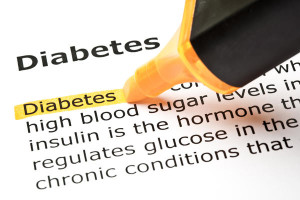Researchers Say Diabetic Ketoacidosis is Preventable
 Federal health regulators have recently raised concerns about diabetic ketoacidosis, a possible side effect of Invokana and other SGLT2 inhibitors. Researchers suggest that ensuring doctors are very clearly informed of the risk may help identify most cases and avert severe harm.
Federal health regulators have recently raised concerns about diabetic ketoacidosis, a possible side effect of Invokana and other SGLT2 inhibitors. Researchers suggest that ensuring doctors are very clearly informed of the risk may help identify most cases and avert severe harm.
The medical journal Diabetes Care published a report in its September issue suggesting an occurrence of common factors shared by Invokana patients and those taking similar sodium-glucose co-transporter 2 inhibitors, who have reported adverse events to the FDA involving a diabetic ketoacidosis injury. Other SGLT2 inhibitors include diabetes drugs Invokamet, Glyxambia, Farxiga, Xigduo XR and Jardiance.
Invokana is a medication designed to lower blood sugar (A1C) in patients with type 2 diabetes. Common side effects of Invokana include changes in urination, genital yeast infections and urinary tract infection.
Ketoacidosis and Invokana
In the journal, Dr. Ele Ferrannini, of Italy’s Institute of Clinical Phsiology, Consiglio Nazionale delle Ricerche and Dr. Julio Rosenstock, of the Dallas Diabetes and Endocrine Center, indicate that the ability to recognize patients displaying specific factors and monitoring them for the metabolic changes that occur prior to a diabetic ketoacidosis-related injury, can assist providers in predicting which patients are at the greatest risk.
In May, the U.S. Food and Drug Administration warned that more than 20 adverse event reports were received involving patients using an SGLT2 inhibitor during the first 15 months Invokana was on the market. These individuals all required emergency room treatment or hospitalization due to DKA. Later in the month, the European Medicines Agency claimed 101 cases of DKA involving Invokana or similar SGLT2 inhibitors has been reported globally.
The researchers noted that most of the DKA patients had a history of alcohol intake, intercurrent illness and reduced food and fluid intake. Additionally, they were mostly insulin-dependent with reduced insulin intake and some likely had type 1 diabetes, not type 2 diabetes. They also observed that Invokana’s clinical trials revealed a much higher rate of DKA than those conducted for other SGLT2 inhibitors, but the rate of incidence was still quite low.
FDA strengthens Invokana warning
On Tuesday, September 10, the FDA added a new warning and precaution and revised the adverse reactions section of the Invokana and Invokamet drug labels. In the new recommendations, the Agency urges healthcare professionals to consider factors that contribute to fracture risk before starting their patients on canagliflozin (a product available under the brand name Invokana).
Patients are encouraged to talk to their doctor about factors that may increase their risk for bone fracture. The Agency notes that people should not stop or change their diabetes medication without consulting their healthcare provider.
The FDA shared additional updates for healthcare professionals, including that bone fractures have occurred in patients taking the medication canagliflozin, fractures can occur as early as 12 weeks after starting the drug and that is has also be linked to decreases in bone mineral density at the hip and lower spine.
- Invokana, About Invokana https://www.invokana.com/about-invokana/what-is-invokana
- U.S. Food and Drug Administration, Invokana and Invokamet (canagliflozin): Drug Safety Communication - New Information on Bone Fracture Risk and Decreased Bone Mineral Density https://www.invokana.com/about-invokana/what-is-invokana


 Resources
Resources
 Resources
Resources
